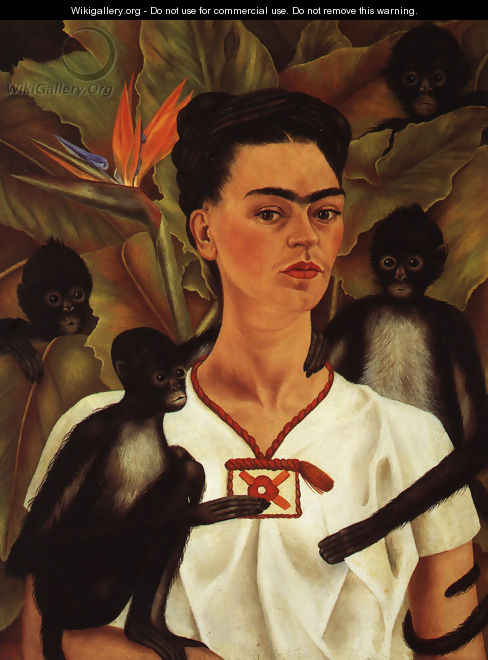The finalists in the $30,000 Man Asian Literary Prize have been selected and according to the chair of the board of directors of the MALP, David Parker, they “have chosen five very different novels, each in its own way brilliant and captivating, representing the achievements of three major Asian
cultures: China, India and Japan.”
The finalists:
Three Sisters by Bi Feiyu, Howard Goldblatt, and Sylvia Li-chun Lin
In a small village in China, the Wang family has produced
seven sisters in its quest to have a boy; three of the sisters emerge as
the lead characters in this remarkable novel. From the small-town
treachery of the village to the slogans of the Cultural Revolution to
the harried pace of city life, Bi Feiyu follows the women as they strive
to change the course of their destinies and battle against an “infinite
ocean of people” in a China that does not truly belong to them. Yumi
will use her dignity, Yuxiu her powers of seduction, and Yuyang her
ambition—all in an effort to take control of their world, their bodies,
and their lives.
Like Dai Sijie’s Balzac and the Little Chinese Seamstress, Arthur Golden’s Memoirs of a Geisha, and J.G. Ballard’s Empire of the Sun, Three Sisters
transports us to and immerses us in a culture we think we know but will
understand much more fully by the time we reach the end. Bi’s Moon Opera was praised by the Los Angeles Times, the Minneapolis Star Tribune, and other publications. In one review Lisa See said: “I hope this is the first of many of Bi’s works to come to us.” Three Sisters
fulfills that wish, with its irreplaceable portrait of contemporary
Chinese life and indelible story of three tragic and sometimes
triumphant heroines.
Serious Men: A Novel by Manu Joseph
A poignant, bitingly funny Indian satire and love story set in a scientific institute and in Mumbai’s humid tenements. Ayyan
Mani will not be constrained by Indian traditions. Despite working at
the Institute of Theory and Research in Mumbai as the lowly personal
assistant to a brilliant but insufferable astronomer, he dreams of more
for himself and his family.Ever wily and ambitious, Ayyan
weaves two plots: the first to cheer up his weary, soap-opera-addicted
wife by creating outrageous fictions around their ten-year-old son; the
other to sabotage the married director by using his boss’s seeming
romance with the institute’s first female—and very
attractive—researcher. Meanwhile, as the institute’s Brahmins wage a
vicious war over theories about alien life, Ayyan sees his deceptions
intertwining and setting in motion a series of extraordinary events he
cannot stop. Unfailingly funny and irreverent, Serious Men is at once a hilarious portrayal of runaway egos and ambitions and a moving portrait of love and its strange workings.
The Thing About Thugs by Tabish Khair
Amir
Ali leaves his village in Bihar to travel to London with an English
captain, William Meadows, to whom he narrates the story of his life –
the story of a murderous thug. While Meadows tries to analyse the
strange cult of the Indian Thug, a group of Englishmen sets out to prove
the inherent difference between cultures and people by examining their
skulls – with bizarre consequences.Set
in Victorian London, this story of different voices from different
places draws intricate lines of connection from the nineteenth to the
twenty-first century, between England and India, across individual and
cultural differences. Known for his refusal to fit his work into established ‘diasporic’, subalternist or post-colonialist narrative traditions, in The Thing About Thugs,
Khair finally engages with these traditions by subtly and ironically
deploying echoes from Victorian literature, ranging from Charles Dickens
to P.M. Taylor’s Confessions of a Thug and Joseph Conrad’s Heart of Darkness.
Changeling by Kenzaburo Oe and Deborah Boehm
Japan’s greatest living novelist has brought the autobiographical novel
and the roman à clef to the highest artistic distinction by merging
them. His and his family and friends’ thoughts and doings are nearly
always the stuff of his novels. This book opens with Kogito, a
distinguished novelist, listening to audiocassettes just sent him by his
oldest friend, Goro, a filmmaker. After his pal says he’s going to head
over to the Other Side now, there is a loud thud on the tape. Goro’s
voice returns, saying he won’t stop communicating with Kogito. Then
Kogito’s wife interrupts to tell him that Goro has committed suicide by
jumping off a roof. (Oe and Juzo Itami, whose Tampopo was an
international hit, were longtime friends, and the latter’s 1997 death
was identical to Goro’s.)
Communication does continue, first as Kogito
vocally responds to the tapes, then in memory while the novelist
undertakes a guest lectureship in Berlin, where he meets Goro’s chaste,
last young lover. The ghostly colloquy gradually focuses on an incident
the friends shared as late teenagers in the sticks where Kogito grew up.
As in previous novels and with comparable mastery, Oe deeply ponders
love, sex, art, friendship, family, and death in a rich, psychologically
acute rhapsody of narration anchored in personal calamities. This one
ends with a willfully upbeat line by Oe’s fellow Nobelian, Wole Soyinka.
–Ray Olson
Hotel Iris: A Novel by Yoko Ogawa
A tale of twisted love, from the author of The Diving Pool and The Housekeeper and the Professor
In
a crumbling seaside hotel on the coast of Japan, quiet
seventeen-year-old Mari works the front desk as her mother tends to the
off-season customers. When one night they are forced to expel a
middle-aged man and a prostitute from their room, Mari finds herself
drawn to the man’s voice, in what will become the first gesture of a
single long seduction. In spite of her provincial surroundings, and her
cool but controlling mother, Mari is a sophisticated observer of human
desire, and she sees in this man something she has long been looking
for.
The man is a proud if threadbare translator
living on an island off the coast. A widower, there are whispers around
town that he may have murdered his wife. Mari begins to visit him on
his island, and he soon initiates her into a dark realm of both pain and
pleasure, a place in which she finds herself more at ease even than the
translator. As Mari’s mother begins to close in on the affair, Mari’s
sense of what is suitable and what is desirable are recklessly engaged.Hotel Iris is a stirring novel about the sometimes violent ways in which we express intimacy and about the untranslatable essence of love.
Have you read any of these? Have a favorite one? Who are your favorite Asian literary authors?






A lot of them go with regard to their call as well as bezel, the very last a person accepted by way of iwc replica uk, trapezoidal paws. Recessed-head anchoring screws are usually the same aspect. Over-all, purchase a Velatura to be able to be a part of a concept; if perhaps you are looking at a little something astonishingly highly accurate plus tricky research your hair-trigger effect if you wish breitling replica serious terrible. Invest in a Velatura if you value an appropriate accommodate, invest in a Velatura sometimes for your limit hand! It’s very bendable inspite of it has the large look and feel. Be squandered anytime soon rule send; it’s this sensible. Seiko’s developing testimonials will be just as before turned out to be together with the Seiko velatura different watches, it has the rough outdoors seaside rolex replica sale flocking around watch-lovers by way of lots. If you sought your dominant-looking chronograph (frequently technical and also auto-Quartz) – it's likely that, you actually fancied a Velatura! Marining a uncertain oceanic masses may be for a tricky. Hence SEIKO Velatura chanel replica bags. A Velatura may be for these folks who seem to like a oceanic masses plus many of the pleasurable louis vuitton outlet uk features, therefore, the Baselworld 2007 establish with SEIKO Velatura as well stirred right up a good number of mariners very on the earth Marining Competition around Spain (August, 2007).
the choice of the Roles immediately replica watchespost its physical evaluation by their watchmaking team. What’s more, in case of a non-agreement on price or change of decision,rolex replica authentic auctioneers will also return the timepiece to you at their cost. The final verdict should always lie with you since it is, after all, your most desired first Rolex watch!
moncler jackets
toms shoes
uggs on sale
ugg boots paris
ugg boots
louis vuitton
mlb jerseys
gucci outlet
michael kors outlet
cheap jordan shoes
michael kors outlet online
cheap true religion jeans
canada goose coat
ralph lauren outlet
ugg outlet online
cheap oakley sunglasses
louis vuitton uk
nhl jerseys
coach factory outlet online
ugg outlet online
rolex watches
uggs sale
true religion outlet
toms sale
gucci handbags
toms outlet
timberland shoes
celine bags
gucci belts
michael kors outlet clearance
tory burch shoes
louis vuitton handbags
ralph lauren polo shirts
louboutin shoes
christian louboutin
adidas nmd
chenlili20160820
kansas city chiefs jerseys
longchamp le pliage
michael kors handbags
cheap nhl jerseys
titans jersey
dolphins jerseys
lions jerseys
oakley sunglasses
longchamp bags
toms outlet